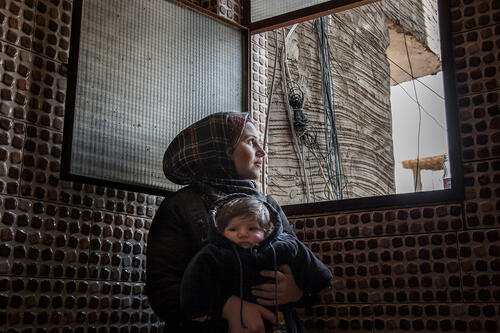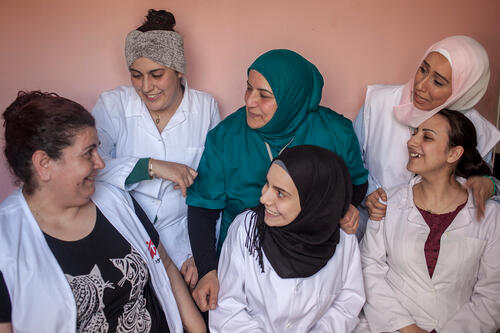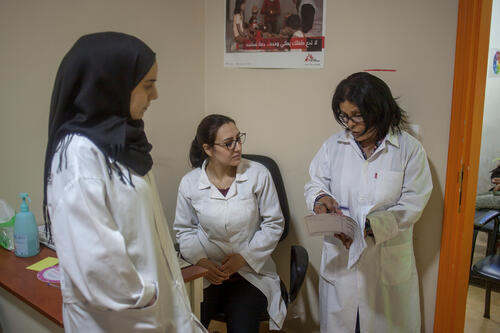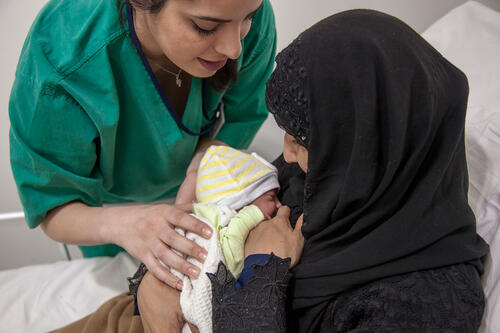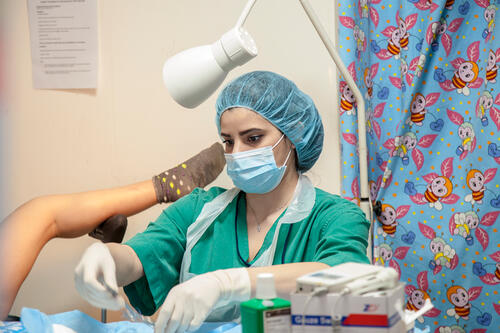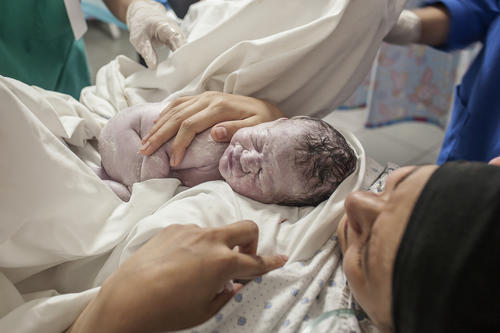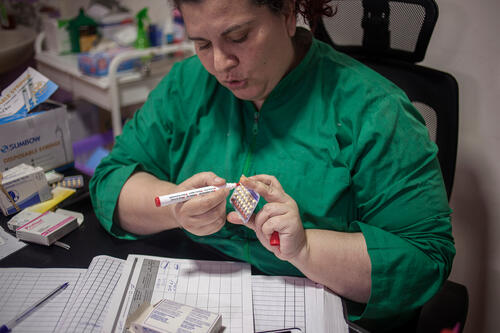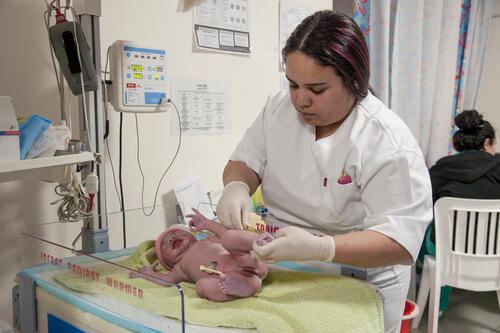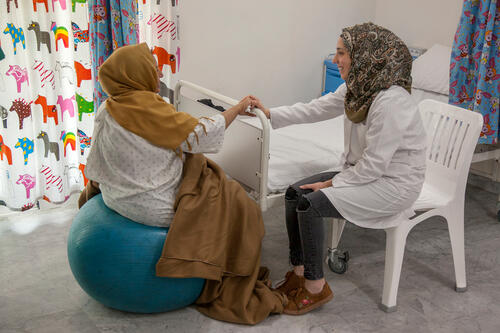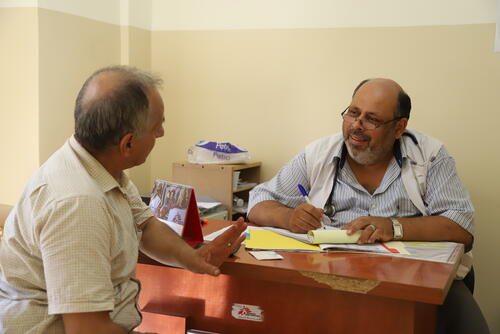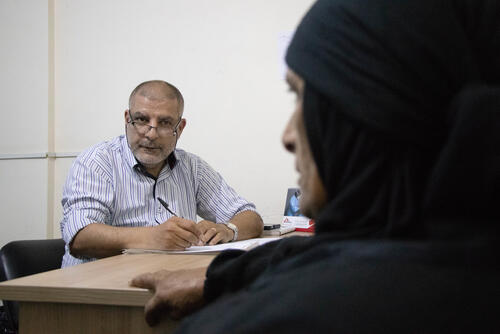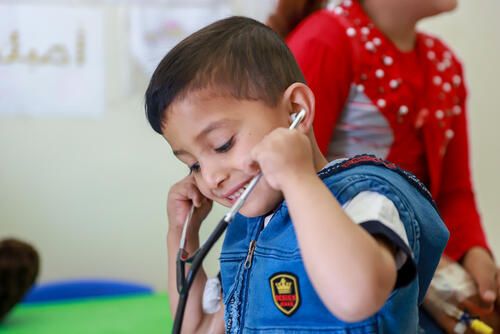The 5th of May marks an important annual event, but most people do not know about it. Though the International Day of the Midwife has been observed on every 5th of May for almost 20 years in over 50 nations, it is not as popular as other international days and doesn’t generally get much attention from the public. Nevertheless, as a strong believer in the role of midwives, I feel that they deserve to be celebrated.
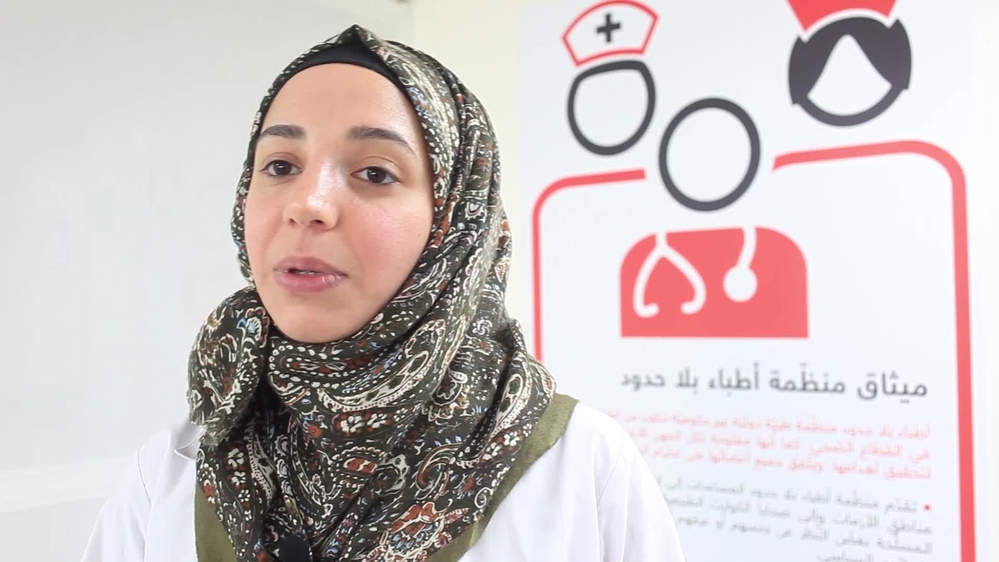
Midwife-led care in Lebanon
I am a doctor specialised in family medicine and the mother of three young boys, all of whom were delivered by midwives in midwife-led centres. This was an active choice I made from the beginning of each pregnancy, because I knew from my medical training and obstetric experience that it meant that there would be less risk of complications both for me and my baby, that my recovery would be quicker, and that the whole experience would be more personal and less clinical.
I first met the group of midwives that followed me at my antenatal appointments, and the relationship followed through from the clinic, to my delivery, to the postnatal care I received to check on my recovery and the baby. The word midwife literally means ‘the person who is with the mother during childbirth’ and I really felt that this was exactly what this group of midwives did for me, from the beginning to the end of each of my pregnancies.
We witness every day trusting relationships being developed between the patients and the midwives throughout our project.Dr Laura Rinchey
A few years later, I started working with Médecins sans Frontières (MSF) in Beirut. There, I realised that the caesarean delivery rate was much higher than the one in my own country. Lebanon recognises that it has a high caesarean delivery rate, often quoted as attaining 40-50 per cent, while, according to the World Health Organization (WHO), the worldwide target rate is approximately 10-15 per cent. There are many factors encouraging this higher C-section rate in Lebanon, but there is currently support within the country to try and redress this imbalance.
I was happy to see that MSF had been contributing to this effort. Since 2012, we have been providing a comprehensive midwife-led reproductive health package in Lebanon, with the aim to reduce medical costs for these services, the overall caesarean delivery rate and the associated complications. Evidence shows that the continuity of midwife-led care increases maternal satisfaction and prevents pre-term birth by 24 per cent. A quality service also improves breastfeeding rates and psychosocial outcomes, reduces the use of unnecessary interventions in some cases, and increases access to family planning.
MSF currently offers free antenatal and post-natal care, and family planning services, in several clinics in the Bekaa Valley in eastern Lebanon and in south Beirut. These centres allow women to freely access all of the services related to sexual and reproductive health care in a fixed location, with staff who can follow their pregnancy from beginning to end. We witness every day trusting relationships being developed between the patients and the midwives throughout our project.
Since 2018, MSF is also engaged in a partnership with Rafik Hariri University Hospital (RHUH) in Beirut, where we pilot our midwife-led model within the hospital. RHUH is the first Lebanese public hospital embracing this rather different approach. At our MSF birth centre, midwives manage non-complicated (low risk) vaginal deliveries and neonatal care, while any maternal and/or neonatal emergencies are transferred to the hospital’s specialist wards for further management by the hospital’s medical teams. The good collaboration between the hospital and MSF illustrates how obstetricians and midwives can actually work together to guarantee safe and healthy deliveries.
I have always been convinced that midwives play a key role in our societies.Dr Laura Rinchey
MSF also implements this model in two other maternity centres in Arsal and Majdal Anjar in the Bekaa Valley. Some of the challenges to developing this model in Lebanon are the low number of midwives being trained each year and the lack of opportunities available for the midwives to practice and develop the skills they learn during their training. At MSF, we want to give midwives the opportunity to practice and develop their skills in our centres. Last year alone, they offered support during nearly 5,000 deliveries in the country.
Throughout my personal and professional experiences, I have always been convinced that midwives play a key role in our societies. My current job in Lebanon just reinforces that feeling and I hope that more public hospitals will embrace this model of care in the country. Delivering a child is one of the most important moments in a woman’s life. Being able to do so naturally, when the medical situation allows, should always be made possible, and so should empowering midwives to manage these deliveries to the best of their knowledge, training and abilities.



